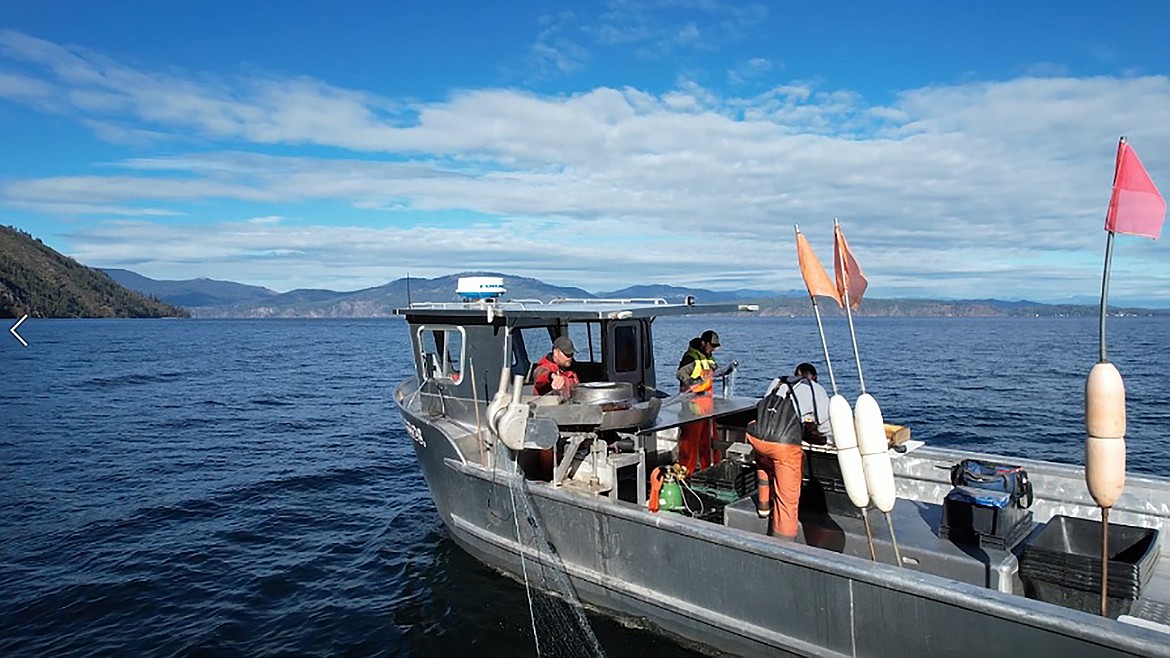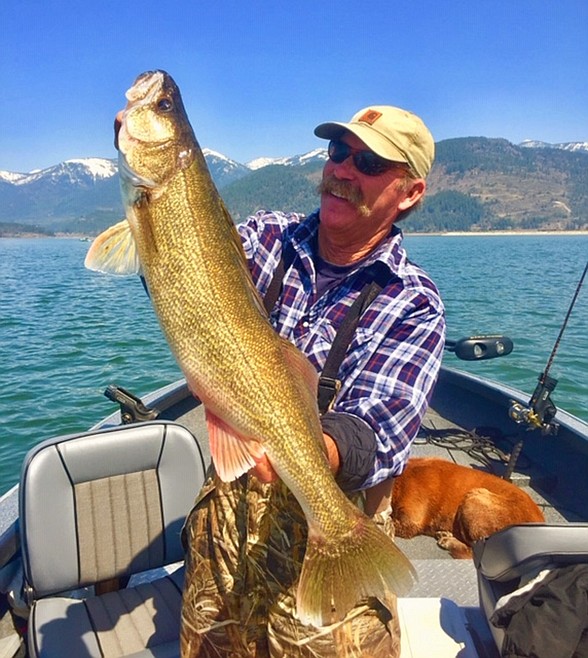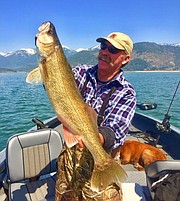Angler compensation takes stage at Lakes Commission meeting
PRIEST RIVER — A brief introduction by Carson Watkins, the new regional Fish and Game supervisor, wrapped up with a pointed question about angler compensation.
Watkins, who took over for Chip Corsi earlier this summer, was at the Lakes Commission’s meeting last Wednesday when Chad Landrum, president of the North Idaho Sportfishing Association, asked about the department’s angler incentive program.
“I’m just curious if there’s any chance of having an equalization of monetary compensation for anglers relative to what the Hickey Brothers are getting for lake trout,” he said.
The Hickey Brothers are a commercial net fishing operation based out of Wisconsin. Gill netting, when a net is dragged through the water where the target species is known to congregate, according to IDFG.
Landrum said the state’s constitution notes that “hunting, fishing, and trapping” should be preferred methods for controlling the wildlife population. Gill netting, he said, is not referenced in the Idaho Constitution.
The success of gill netting in suppressing lake trout, which are known to eat juvenile bull trout, outweighs that concern, Watkins said. In IDFG’s view, the incidental killing of some bull trout is permissible – so long as enough of the lake trout are killed as well, he said.
Gill netting operations began on Lake Pend Oreille in 2006, six years after the removal of all harvest limits on lake trout and the implementation of the Angler Incentive Program. Targets still were not being met, so IDFG brought in the Wisconsin company.
While everyday anglers are only paid about $15, Landrum said the Hickey Brothers are being paid about $75 per lake trout, if their contract is factored by the number of lake trout they take.
Watkins answered that “there are certain instances, like with lake trout and walleye, where we cannot get harvest high enough to reach our objectives for other species” without netting.
“It has been very important for anglers to be a part of the management solution for the restoration of Pend Oreille, but they are not the silver bullet… and we have been over this with you,” Watkins told Landrum.
The NISA has a petition on its website to stop gill netting and to increase the incentive per lake trout to $45 to encourage more anglers to participate in controlling their population, Landrum said.
However, Watkins said that may not be a practical solution due to the effectiveness of gill netting.
“With the contribution that anglers make right now, it does not make a lot of fiscal sense to drive that number up,” he added.
In the petition, the NISA alleges that IDFG-contracted netting operations with the Hickeys take 400-500 bull trout a year from Lake Pend Oreille.
“The amount of take that is reasonable is communicated to us by the [U.S. Fish and Wildlife] Service,” Watkins said.
Since the IDFG knows where lake trout and bull trout populations overlap or not, they try to find the areas with the little or no bull trout. Another is doing shorter netting operations, so a bull trout that is caught can be found before it dies.
“Turns out that if you have a lot of lake trout, that is really bad for bull trout. And if you are able to suppress those species at the level that we have, the collateral damage that you do on the bull trout population more than makes up for itself because we are removing lake trout that compete with bull trout and prey on them,” Watkins said.



